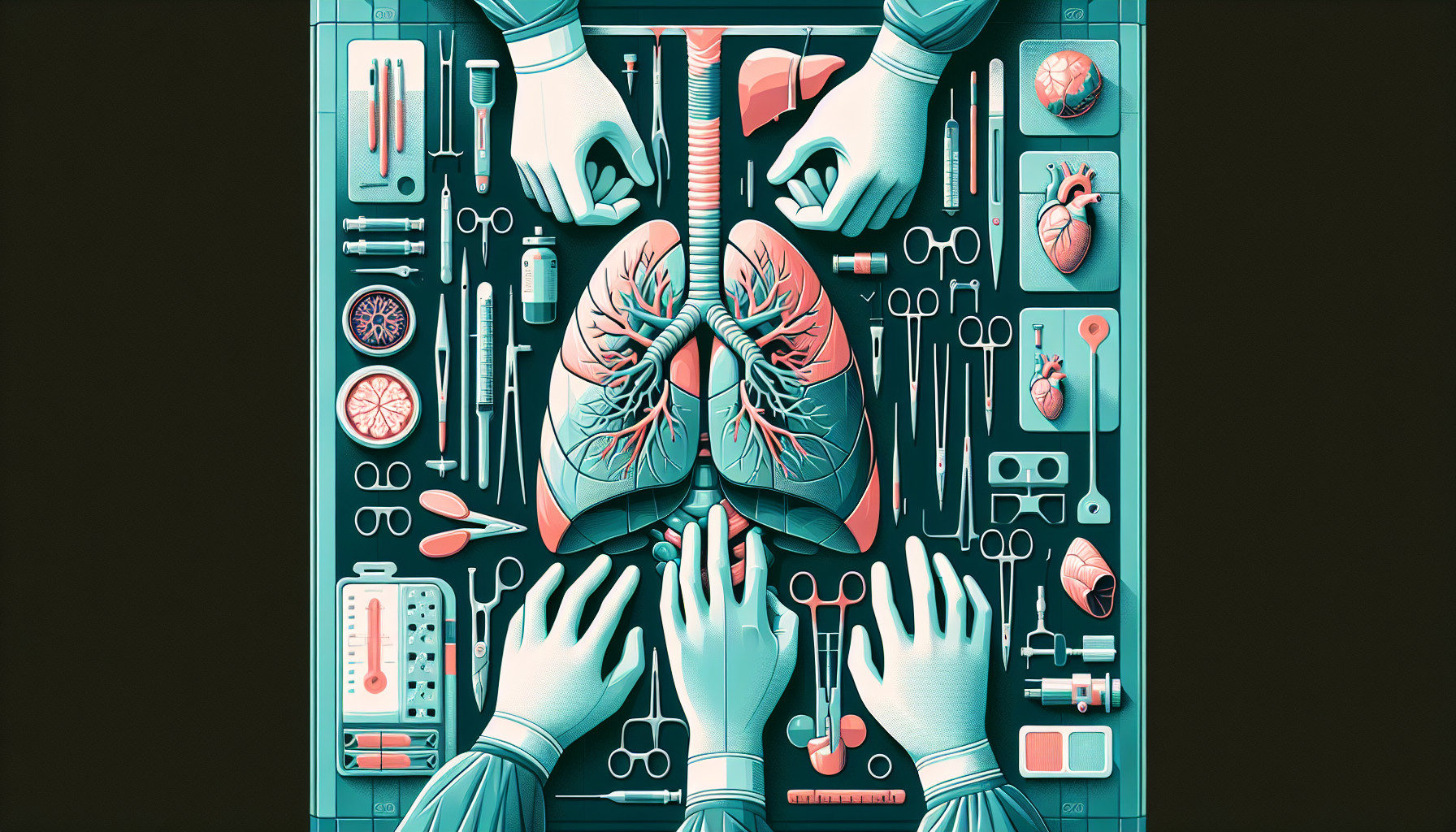Our Summary
This research paper is about a study that looked at whether patients with early-stage lung cancer could be discharged quickly after undergoing a less invasive type of lung surgery. This was considered in the context of the COVID-19 pandemic where hospital resources have been stretched thin.
The study included patients with stage I-II non-small cell lung cancer who underwent the surgery from September 2019 to June 2022. Out of 430 patients who had the surgery, 37% were discharged quickly (within 18 hours after surgery) and the rest were kept in hospital for a longer period.
The researchers found that the group of patients who were discharged quickly were typically younger, healthier (according to the American Society of Anesthesiologists class), had a specific type of surgery called segmentectomy more often, and had smaller tumors.
They discovered that there was no significant difference between the two groups in terms of how far they lived from the hospital and their readmission rates. However, older patients were more likely to stay in the hospital longer after surgery, while those who had a segmentectomy were more likely to be discharged quickly.
In conclusion, the study suggests that rapid discharge after less invasive lung surgery for early-stage lung cancer can help save hospital resources without negatively impacting patient outcomes.
FAQs
- What was the primary focus of this research study related to lung surgery and the COVID-19 pandemic?
- What were the findings of the study in terms of patient characteristics and their discharge timings post-surgery?
- How does rapid discharge after less invasive lung surgery impact hospital resources and patient outcomes?
Doctor’s Tip
A helpful tip a doctor might tell a patient about lung resection is to follow their post-operative care instructions carefully, including taking prescribed medications, attending follow-up appointments, and avoiding activities that could strain the lungs. It is also important to maintain a healthy lifestyle, including quitting smoking if applicable, to support the healing process and reduce the risk of complications.
Suitable For
Patients who are typically recommended for lung resection surgery include those with early-stage non-small cell lung cancer, specifically stage I-II. These patients should be in good overall health, with a lower American Society of Anesthesiologists class indicating better health status. Patients with smaller tumors are also good candidates for lung resection surgery.
Additionally, patients who are younger and have a specific type of surgery, such as segmentectomy, may be more likely to be recommended for lung resection. It is important for patients to be able to tolerate the surgery and have a good prognosis for successful outcomes.
Overall, patients recommended for lung resection surgery should be carefully evaluated by a medical team to determine their suitability for the procedure and to ensure that they have the best possible outcome.
Timeline
Before lung resection:
- Patient is diagnosed with early-stage lung cancer.
- Patient undergoes preoperative testing and evaluations to determine if they are a candidate for surgery.
- Patient receives information about the surgery, potential risks, and recovery process.
- Surgery date is scheduled, and patient prepares for the procedure by following preoperative instructions.
- Patient undergoes lung resection surgery.
After lung resection:
- Patient is closely monitored in the postoperative recovery area.
- Patient may experience pain, discomfort, and shortness of breath after surgery.
- Patient is gradually mobilized and encouraged to perform breathing exercises to aid in recovery.
- Patient is monitored for any signs of complications such as infection or bleeding.
- Patient is discharged from the hospital, either quickly (within 18 hours) or after a longer stay, depending on their specific circumstances.
- Patient continues to recover at home, following postoperative instructions provided by their healthcare team.
- Patient may undergo follow-up appointments, imaging tests, and potentially adjuvant treatments such as chemotherapy or radiation therapy.
- Patient resumes normal activities as they continue to recover and regain strength.
What to Ask Your Doctor
What are the potential risks and complications associated with lung resection surgery?
How long is the typical recovery time after a lung resection surgery?
Will I need any additional treatments or therapies after the surgery?
How will my lung function be affected after the surgery?
Are there any lifestyle changes I should make to support my recovery after lung resection surgery?
What is the likelihood of the cancer recurring after the surgery?
How often should I follow up with you after the surgery?
Are there any specific signs or symptoms I should watch out for after the surgery that may indicate a complication?
What is the success rate of this type of surgery for early-stage lung cancer?
How will my overall quality of life be impacted after the surgery?
Reference
Authors: Dolan DP, Visa M, Lee D, Lung KC, Patino DA, Kurihara C, Garza-Castillon R Jr, Odell DD, Bharat A, Kim S. Journal: Ann Thorac Surg. 2024 Feb;117(2):297-303. doi: 10.1016/j.athoracsur.2023.07.046. Epub 2023 Aug 15. PMID: 37586584
